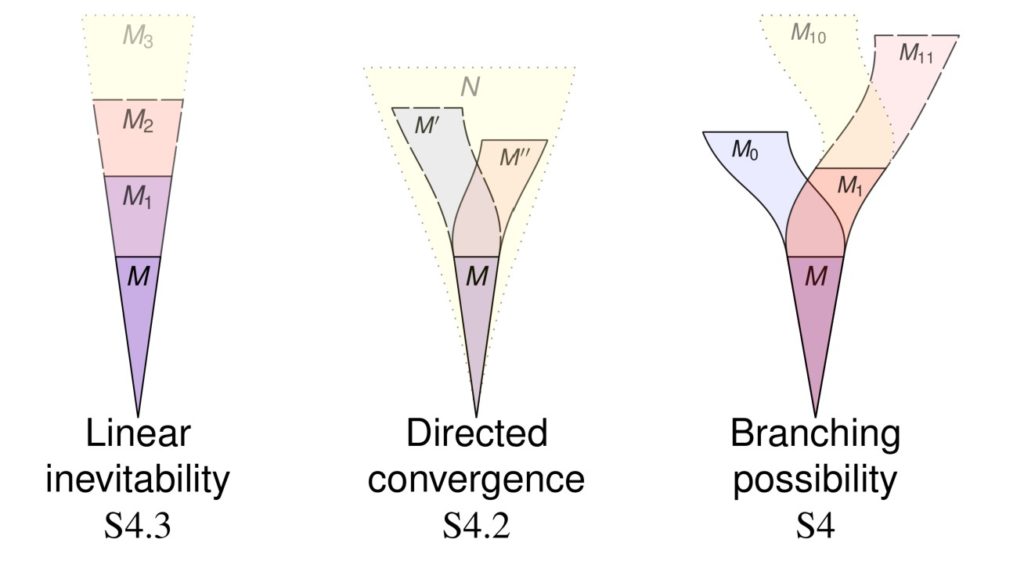This will be a talk for the Department Colloquium of the Philosophy Department of the University of Notre Dame, 26 March 12 pm EST (4pm GMT).

Abstract: Potentialism is the view, originating in the classical dispute between actual and potential infinity, that one’s mathematical universe is never fully completed, but rather unfolds gradually as new parts of it increasingly come into existence or become accessible or known to us. Recent work emphasizes the modal aspect of potentialism, while decoupling it from arithmetic and from infinity: the essence of potentialism is about approximating a larger universe by means of universe fragments, an idea that applies to set-theoretic as well as arithmetic foundations. The modal language and perspective allows one precisely to distinguish various natural potentialist conceptions in the foundations of mathematics, whose exact modal validities are now known. Ultimately, this analysis suggests a refocusing of potentialism on the issue of convergent inevitability in comparison with radical branching. I shall defend the theses, first, that convergent potentialism is implicitly actualist, and second, that we should understand ultrafinitism in modal terms as a form of potentialism, one with surprising parallels to the case of arithmetic potentialism.

